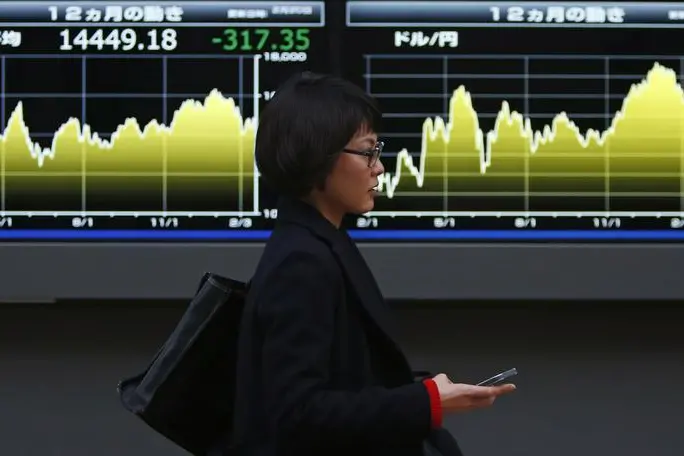PHOTO
China shares gained on Monday as investors returning from the week-long Lunar New Year break snapped up tourism and entertainment stocks in the wake of buoyant holiday spending.
Traders were also inspired by last week's robust performance in Hong Kong stocks and U.S.-listed Chinese companies.
Some bet the government will roll out more measures soon to support China's struggling economy and the market, though the central bank kept a key policy rate unchanged on Sunday.
China's blue-chip CSI300 Index rose 0.5% by the lunch break, while the Shanghai Composite Index climbed 0.9%.
But Hong Kong's Hang Seng Index retreated 1% after a three-day rising streak, with the tech subindex plunging 2.7%.
Yang Delong, chief economist at First Seafront Fund Management, said he expects the new head of China's securities watchdog - who was appointed days ahead of the holiday break - to provide support to China's ailing capital markets through a series of reforms.
Tourism revenues in China during the Lunar New Year (LNY) holiday surged 47.3% from a year earlier, official data showed on Sunday. On the entertainment front, China's box office revenue exceeded 8 billion yuan ($1.11 billion) during the eight-day break, marking a record high.
"These are strong numbers, partially reflecting the pent-up demand for family gathering during the first normal LNY since Covid," Goldman Sachs economist Hui Shan said in a note.
"The robust LNY tourism data are encouraging for our 6% real household consumption growth forecast for 2024."
Travel-related stocks jumped. Jinjiang Hotel shares surged 7.5% to a three-week high. Changbai Mountain Tourism gained 6%.
Shares of film makers including China Film Co Ltd , Bona Film Group and Beijing Enlight Media also leapt.
But the small-cap CSI500 Index lost 0.7%, while property shares fell in both China and Hong Kong, reflecting the market's fragility as the sector remains the bane of China's economic troubles. Goldman said that China's "housing bottom is not in sight" yet.
Investors also chased shares of Chinese artificial intelligence (AI) companies, with excitement fuelled by OpenAI's new software, called Sora, that can generate minute-long videos based on text prompts.
Recent news in the AI industry "supports our optimistic views" on demand for computing power, Guosheng Securities said in a report, expecting AI to remain a hot investment theme this year in China and globally. ($1 = 7.1936 Chinese yuan renminbi) (Reporting by Shanghai newsroom; Editing by Kim Coghill and Shri Navaratnam)





















